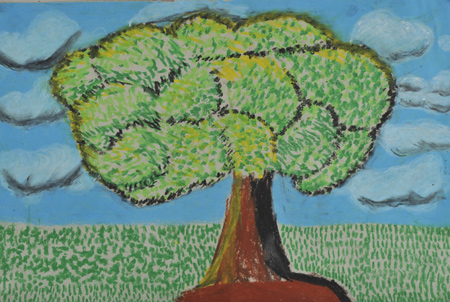[contextly_auto_sidebar]
Victims of miscarriages of justice faced ‘a second injustice’ post-release often left without a bed for the night and with even less support than offenders, according to a report by housing charity Commonweal published today. Along with the trauma of wrongful conviction, the report highlighted that those wrongly accused who had their onvictions overturned received a ‘startling’ lack of statutory support and did not receive priority for local authority housing.
‘Having been failed by the system in the most terrible way, victims of miscarriages of justice too often face a second injustice when attempting to access housing’, said Commonweal’s chief executive, Ashley Horsey. Commonweal Housing, a charity which seeks to tackle social injustices by providing integrated housing and support services, is calling on the government to improve local council’s awareness of their responsibilities towards miscarriage of justice victims after their release from prison.
In particular, Commonweal is recommending that the Housing Minister, Brandon Lewis MP follows the example set out by the Department of Work and Pensions, which has explicitly recognised in its Work Capability Assessment that those who have experienced a miscarriage of justice should be entitled to special consideration due to the impact of their wrongful imprisonment.
Commonweal maintains that through ‘very little effort’ on behalf of the government, local authorities could be encouraged to recognise miscarriage of justice victims as vulnerable and in priority need, should they approach them as homeless. Enabling such victims to access the support and local services that they need ‘would bring enormous benefit to the victims at minimal cost to the statutory and voluntary services’, and ultimately would also ‘go a long way to allowing society to restore a fair deal and a just level of support to people whose problems have been caused by wrongful imprisonment’.
‘A wronged minority’
Since its creation in 1997, the Criminal Cases Review Commission (CCRC) has helped to establish the innocence of almost 400 people, and on average, 12 people each year are released following a successful appeal. Presently only one service is available to miscarriage of justice victims—the Miscarriage of Justice Support Service, which is provided by the Royal Courts of Justice Advice Bureau.
The report highlights the critical need to recognise the vulnerability of these individuals—‘a niche but wronged minority’—and moreover the special consideration that they deserve due to the impact of their wrongful imprisonment. The report notes the cruel irony that miscarriage of justice victims sometimes fail local authority homelessness intentionality assessments because they are deemed to have caused their own homelessness—‘an odd notion when their imprisonment was due to a now-acknowledged error by the State’.
The immediate need for victims of miscarriages of justice upon release from prison is appropriate housing. Individuals are released immediately upon judgement being delivered, but no longer have a home to go to. As with ex-offenders, they are entitled to a £50 discharge grant—a sum which leaves them with little options for finding a bed for the night.
‘The first need is to find a bed for the night. They will be released immediately on the judgment being delivered, but no longer have a home to go to. In many cases family relations will have broken down, or will require time and careful management in order to be restored and rebuilt.’
Commonweal Housing: A Call to Action
This is compounded by the typically lengthy nature of miscarriage imprisonment terms: previous bank accounts may be closed, they will have no current bank cards or identity documents, and family relationships may have long since broken down. As was the case for Victor Nealon, a former postman who served 17 years in prison for a crime he did not commit, many will spend their first night of freedom sleeping on the streets. As Nealon’s solicitor, Mark Newby noted bitterly during a speech at this year’s United Against Injustice conference: ‘You might at least have thought that he could rely on the support of the state on his release.’
Call to action
Commonweal’s report, which follows a successful pilot housing project undertaken by the charity to house miscarriage of justice victims, sets out in its ‘call to action’ the need for comprehensive local support to encourage recognition by statutory services of the special needs of these victims, the provision of complementary specialist and flexible housing opportunities by the voluntary sector, and furthermore for opportunities in the private sector to be made available, including through private renting and socially-oriented lettings schemes.
Following the devolvement of post-release case work from the Royal Courts of Justice CAB to local CABs, the report highlights the necessity for local CABs in the areas where released miscarriage victims wish to settle to be able to call on effective local partners, who are aware of the complex needs of this group of individuals.
Commonweal is pledging £20,000 in matched funding to establish a fund to enable the successful re-housing and re-integration of victims into the community, and is calling on other interested parties for their support. The campaign has already been backed by the Chartered Institute of Housing, the professional body for the housing sector.
‘Victims of miscarriages of justice can wait for years for justice in the courts, paying with their freedom for the mistakes of the criminal justice system. They should not have to wait years after their release to get fair and just recognition of their needs and be provided with the support they require.’
Commonweal Housing: A Call to Action
Commonweal’s report, Justice after Release: Housing Options for Miscarriage of Justice Victims, A Call to Action can be found here.







